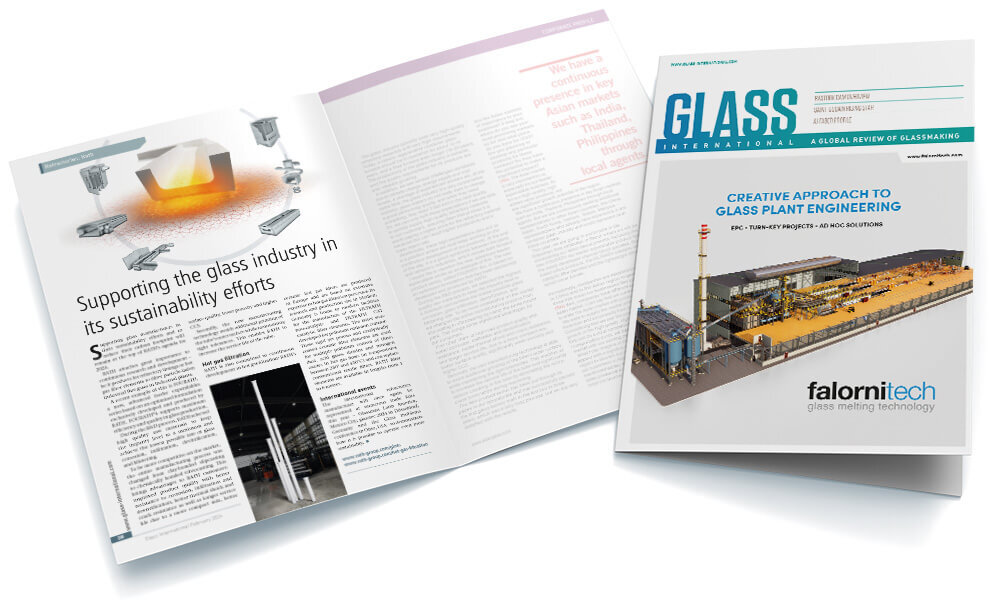From energy-saving refractory solutions to hot gas filtration: Supporting the glass industry in its sustainability efforts remains at the top of RATH's agenda in 2024

Vienna, March 22, 2024
During the R&D process, RATH selected the highest quality raw materials to keep the impurity level to a minimum and achieve the lowest possible rate of glass corrosion, infiltration, devitrification, and blistering. To be more competitive on the market, the entire manufacturing process has been changed from slipcasting to vibrocasting, using the same mold park. This brings some significant advantages to RATH customers: improved product quality with better resistance to corrosion, infiltration and devitrification, better thermal shock and crack resistance as well as longer service life due to a more compact mix, better surface quality, significantly lower porosity and higher CCS. Secondly, the new manufacturing technology avoids additional grinding of the tube’s outer surface while maintaining tight tolerances. This enables RATH to increase the service life of the tube.
Hot gas filtration: RATH helps to meet emission requirements in industrial plants
RATH is also committed to continuous development in hot gas filtration: RATH's innovative ceramic hot gas filters are produced in Europe and are based on extensive expertise in hot gas filtration processes. The RATH research and production site in Meißen (Germany) is home to cutting-edge facilities for the manufacture of RATH'S FILTRATH® non-catalytic and FILTRATH®CAT catalytic filter elements. The latter were developed for pollutant emission control: These rigid yet highly porous and catalytically coated ceramic filter elements are used for multiple pollutant control of (fine) dust, acid gases, dioxins and nitrogen oxides in hot gas flows (at temperatures between 250 ° and 420 °C) and can easily replace conventional textile filters.
RATH filter elements are available in lengths from 1 to 6 meters.
www.rath-group.com/hot-gas-filtration
Contact:
Anja Rauter
Global Manager Marketing Communications
T +43 1 513 44 27 - 21 76
E anja.rauter@rath-group.com
Thomas Binder-Krieglstein
Head of Group Marketing
T +43 1 513 44 27 - 21 74
E thomas.binder-krieglstein@rath-group.com
